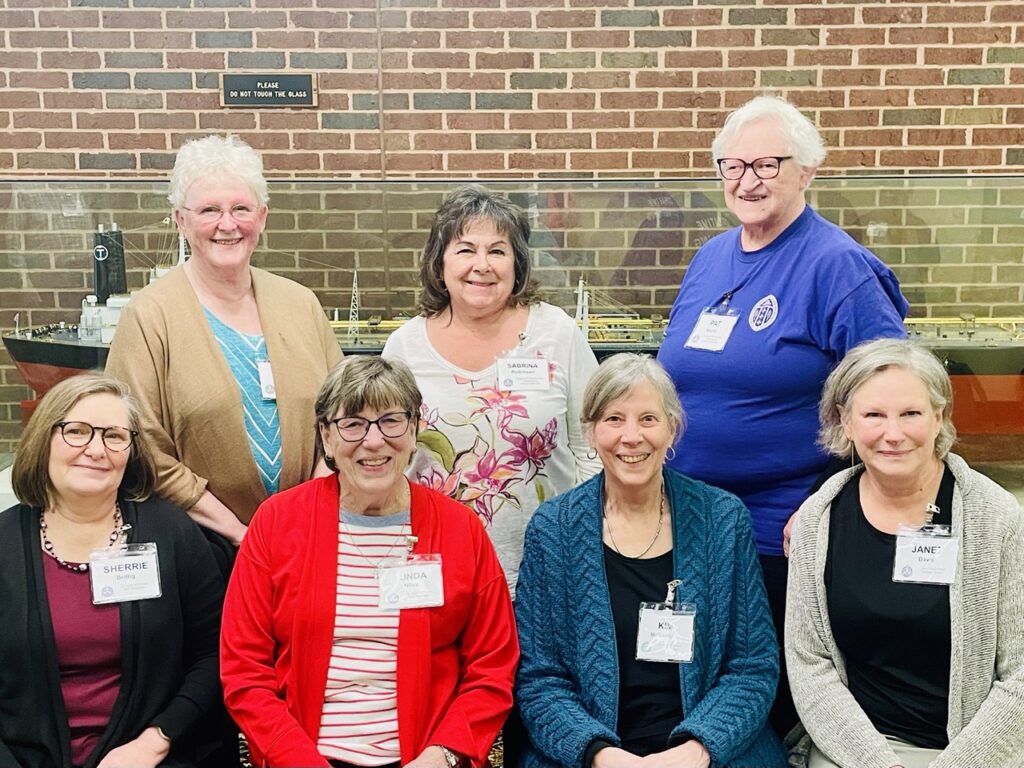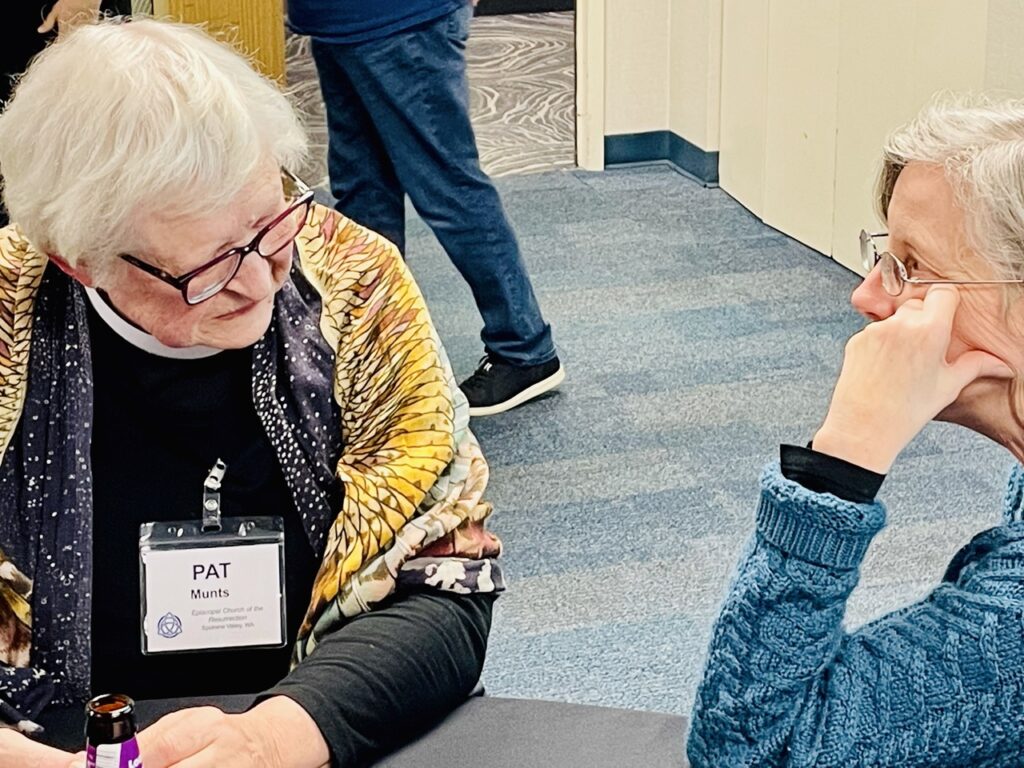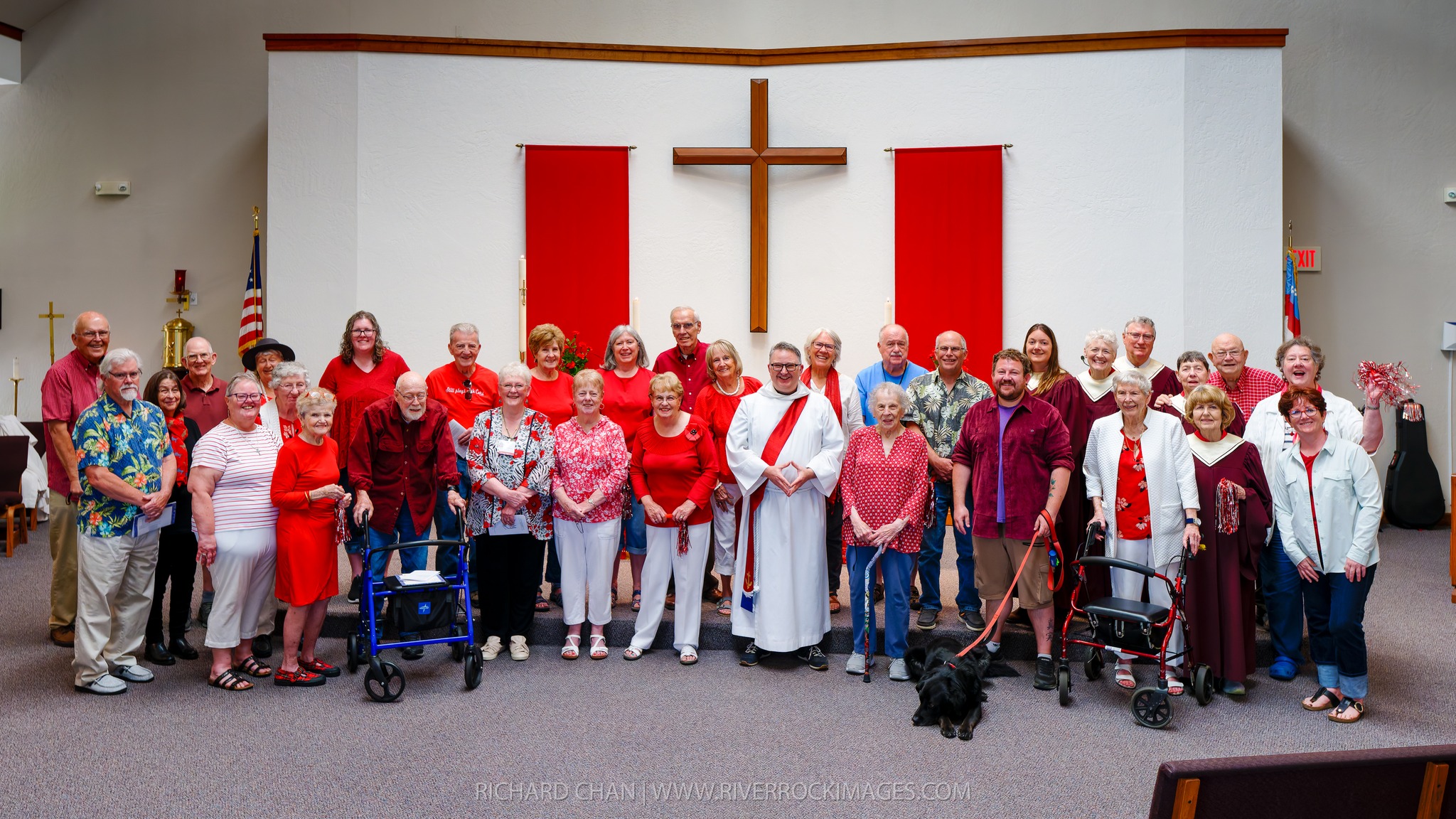By Melanie P. Moore
This summer, Episcopal Church of the Resurrection in Spokane Valley, Washington, was overwhelmed with abundance, quite literally resurrecting their parish after a season of devastating losses.
“In 2023, we had 13 deaths in our parish,” said Sr. Warden Ann Newton. “Almost a death a month. It was a horrific year.”
“We lost several matriarchs,” said Deacon Pat Munts. “They had strong voices and a strong work ethic. We’re still adjusting to losing those leaders. It’s like starting over.”
Through support from the Diocese of Spokane and, more recently, membership in the Iona Collaborative, they have begun to thrive.
Earlier this year, Munts, Newton, and Sabrina Robinson traveled east to Baltimore for a workshop with the Iona Collaborative. The title of this workshop: Doing Church in the Age of Low Energy resonated with these leaders, and the experience proved to be vital.
“That whole cohort meeting was just invaluable from the point of making us realize we are an average-sized Episcopal church,” said Munts. “We’re not any different from 50%-70% of Episcopal churches in the country.”
“When we came back and told that to the congregation, I think that knowledge was empowering for them,” said Newton.


“It removed the fear that we were failing,” said Munts.
“We’ve been without a priest since July 2023,” said Newton. “Following July, most of the congregation thought we were going to dissolve; that we wouldn’t survive. As Sr. Warden, I was asked every Sunday, ‘When are we going to get a priest?’ And I had to say, ‘I don’t know.’”
Finding a New Way
“They don’t ask anymore,” Newton said. “I think they’re on board that it’s nice to have a priest, but you don’t have to have one to have a congregation that works together. We’re moving ahead; we have morning prayer and communion when we have a supply priest, and if no supply priest is available, we have reserve sacrament.”
“Our bishop, Gretchen Rehberg, instituted Communion from reserve sacrament because there are so many parishes in the diocese without priests,” Munts said. “She didn’t think that lacking a permanent or supply priest should be a barrier to churches receiving Communion.”
“She trained up a cadre of us that can do that. It’s a different structure for Communion, but it works really well. We just need to have consecrated elements on hand. If we run out between supply priests, I take a bottle of wine and a box of wafers up to the diocesan office for their Wednesday morning service and just plunk them down on the altar,” laughed Munts.
“I think Gretchen allowing us to use reserve sacrament is a blessing above blessings,” Newton said. “I’m eternally grateful for that opportunity she’s given. We have Pat [Munts], who is a deacon, as well as three other leaders who have been trained to preach, and another group of three who are trained for reserve sacrament.”
“Our bishop has been our cheerleader for about 6-8 years. If there’s something she thinks might help us, she lets us know. We are the only Episcopal church between downtown Spokane and Coeur d’Alene, Idaho. She wants us to be the presence in the Spokane Valley. She’s a great shepherd,” Munts said. “You can ask her any question. If either a clergy or lay leader calls, she answers the phone. She’s definitely a great shepherd for us.”
Fertile Ground Abounds
The past summer brought a surge of activity and opportunities to the church.
“At the end of July, when the issues around immigration started exploding, some of us got in touch with the immigrant resource people here in town to see where we could help,” said Munts. “A Hispanic congregation worships across the street from us. We got word that several of their people had been picked up by ICE, leaving several families from the congregation without child supervision. We stepped in to provide some resources for a Bible camp they were organizing. We donated craft supplies, food, and kitchen support to help that community get through the summer to the start of the school year. As a group, we’ve been trying to figure out how to get in touch with our neighbors. Only a few of us speak Spanish, so that had been a barrier, but this broke the barrier.”
“It’s been interesting: with the current politics, for the last 6 months, we’ve been getting a few more visitors coming through looking for places they feel comfortable. A couple of them have stayed. The politics and the like have got our community on the radar for possible church homes. Probably because, for one thing, we welcome all and they see that in our web page, so they’ll come and try it out.”
The congregation’s latest outreach activity includes an English-speaking Ukrainian evangelical congregation that seeks to share space with Church of the Resurrection.
“In our service, the aisles are full of walkers, but theirs are full of strollers,” Munts said. “While they are still working through channels with the diocese, they are proceeding in ‘temporary mode’ for now.”
In addition to these new groups, Resurrection’s existing groups include 4 scout troops, 2 yoga classes, a “Prayers and Squares” quilting group, and a for-profit daycare renting the downstairs portion of their building. That’s not even counting the Creation Care ministry and resources.
“We have a large orchard and community garden behind the church,” Munts said. “The orchard was probably planted before the 1940s. We’ve tied in with the Spokane Edible Tree Project. Their team comes in late winter, early spring, to teach pruning classes. In the fall, they return to harvest the apples for donation to Northwest Harvest Food Bank. The community garden is about half an acre with about 40 garden boxes and open space for gardening. With our new relationships, we anticipate seeing many new gardeners this spring.”
“We used to be a church that was empty except on Sunday,” Newton said. “Now the church is a hub of activity—every day there is something going on.”
Holy Spirit Episcopal Church merged with All Saints Episcopal church in the late 1990s to become Resurrection. According to Newton, it was one of the biggest and best things that had happened for the church, even though, as she described it, “All Saints was very ‘high church’ and Holy Spirit was ‘snake belly low.’”
“Something interesting, too,” said Munts, “is that this church has sent out one bishop, several priests, and 2 deacons over the years. We seem to be generating people who feel drawn to ministry, which says something about the family we are and how we express our faith.”
Like their agricultural garden, Episcopal Church of the Resurrection has been a fertile ground for all kinds of growth, including the most recent resurrected growth.
“Pat’s church is a great example of a church that has made it through the deepest ditch of the Bi-vocational Journey and is finding a sustainable new rhythm and asking great new questions,” said Janet Davis, the Iona Collaborative Spiritual Director assigned to Resurrection, who met with them following the Baltimore workshop earlier this year.
“I had joined Iona about a year and a half ago,” said Munts.” So we’re still learning what Iona can offer. I had heard of them before and had wished I could take some of the classes, but when we joined, it opened up so much in terms of education and consulting. We are just at the tip of the iceberg of what Iona can do for us. The classes beat anything I’ve taken before because they’re made for people on the ground. The Iona Collaborative programs are what many of us need.”

